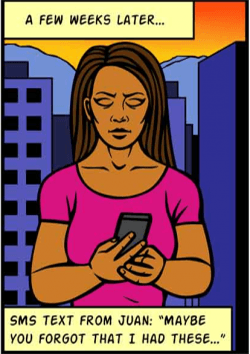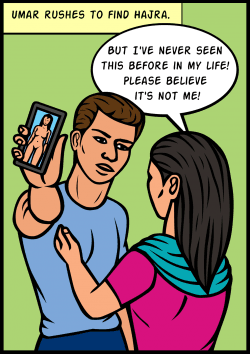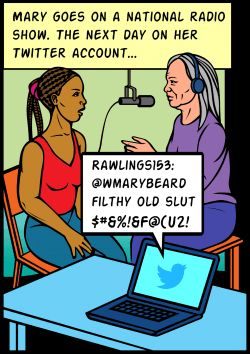Gender-based violence
Gender-based violence (GBV) means any act that results in harm and disproportionately affects women and non-binary people, such as intimate partner violence, rape and sexual harassment. The root cause of GBV lies in unequal power relations between men and women in almost all facets of life.
In 1993, the United Nations General Assembly officially recognised violence against women (VAW) as a violation of fundamental human rights through the Declaration on the Elimination of Violence Against Women, defining VAW as "any act of gender-based violence that results in, or is likely to result in, physical, sexual or psychological harm or suffering to women, including threats of such acts, coercion or arbitrary deprivation of liberty, whether occurring in public or private life".
Internet communication technology
Information communication technology (ICT) encompasses the tools and platforms we use for our communication and information needs. These can be analogue or digital formats, including radio, television broadcasts, mobile phones and the internet. ICT has become a fundamental part of our daily activities, merging digital and physical spaces.
ICT and GBV
ICT can transmit and disseminate norms through representations of culture and social structures, reinforcing notions of "difference" between men and women by contributing to the normalisation of gender role stereotypes. The increased diversity of content producers on the internet, however, allows an array of representations that affect gender relations in complex ways. The many strands of discourses on gender, sex, race and culture that are communicated through ICT affect what we see as normal, what we uphold and what we challenge.
The speed, vastness and relative ease of use of ICT reduce distance and time between people. This can have a great influence on GBV. ICT can allow survivors of GBV to access information and assistance but can also increase abusers' opportunities to commit violence. Local organisations can use ICT to mobilise support and increase their resources, but privacy and security can be compromised through those same platforms.
Both ICT and GBV affect our capacity to fully enjoy our human rights and fundamental freedoms. GBV in the material world is replicated and perpetrated in various ways in the virtual world, but ICT can provide tools for women to find help, connect with others and take action. Take Back The Tech! responds to this connection by calling for everyone to take control of technology to end gender-based violence.
Communication rights
People sometimes worry that safety measures will affect information and communication rights. These rights include not only freedom of opinion and expression, but also encompass areas such as the right to information, privacy, democratic governance, participation in culture, language, creativity, education, peaceful assembly and self-determination. Anyone who cares about communication rights should also be concerned about the relationship between ICT and GBV.
When women and non-binary people are attacked through ICT, their communication rights are at risk. Such violence aims to silence women, to push them out of digital spaces and keep them from participating in all levels of society. Further, women are often at a disadvantage when dealing with issues such as media ownership, censorship and content regulations, privacy and intellectual property rights because they are not always directly represented in local, regional, national and international decision-making.
Take Back the Tech! assists women in claiming their full communication rights by celebrating women's contributions to ICT development, sharing information and creating collective knowledge, engaging in capacity building and education, producing media alternatives, networking and building solidarity. Whether new forms of ICT replicate, amplify or destabilise power relations will depend largely on how closely we all monitor and participate in their development and discourse.



